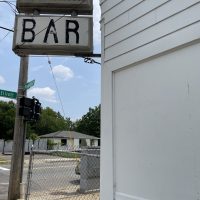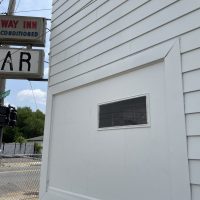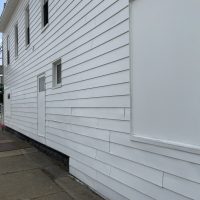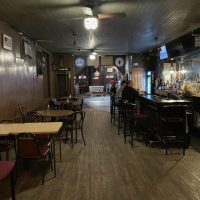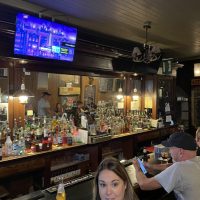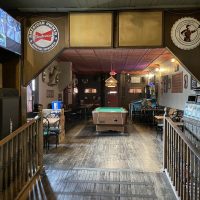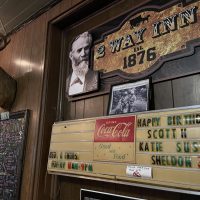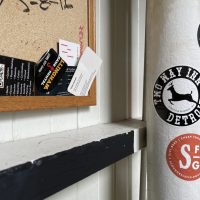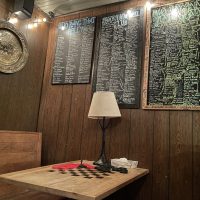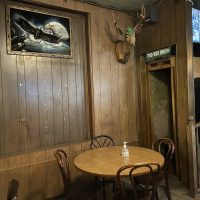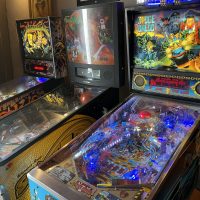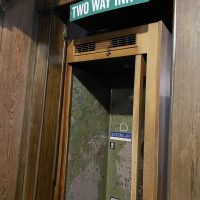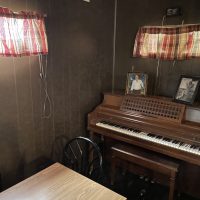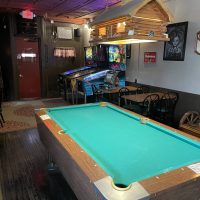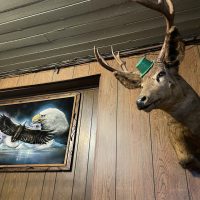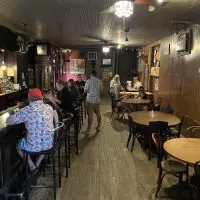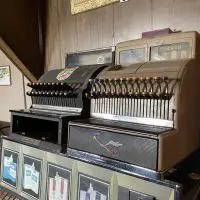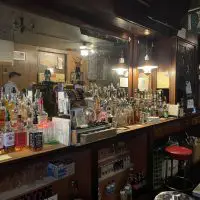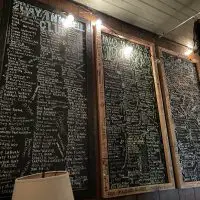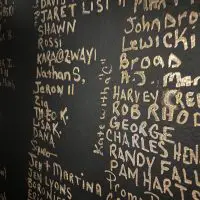Two Way Inn
Detroit, Michigan
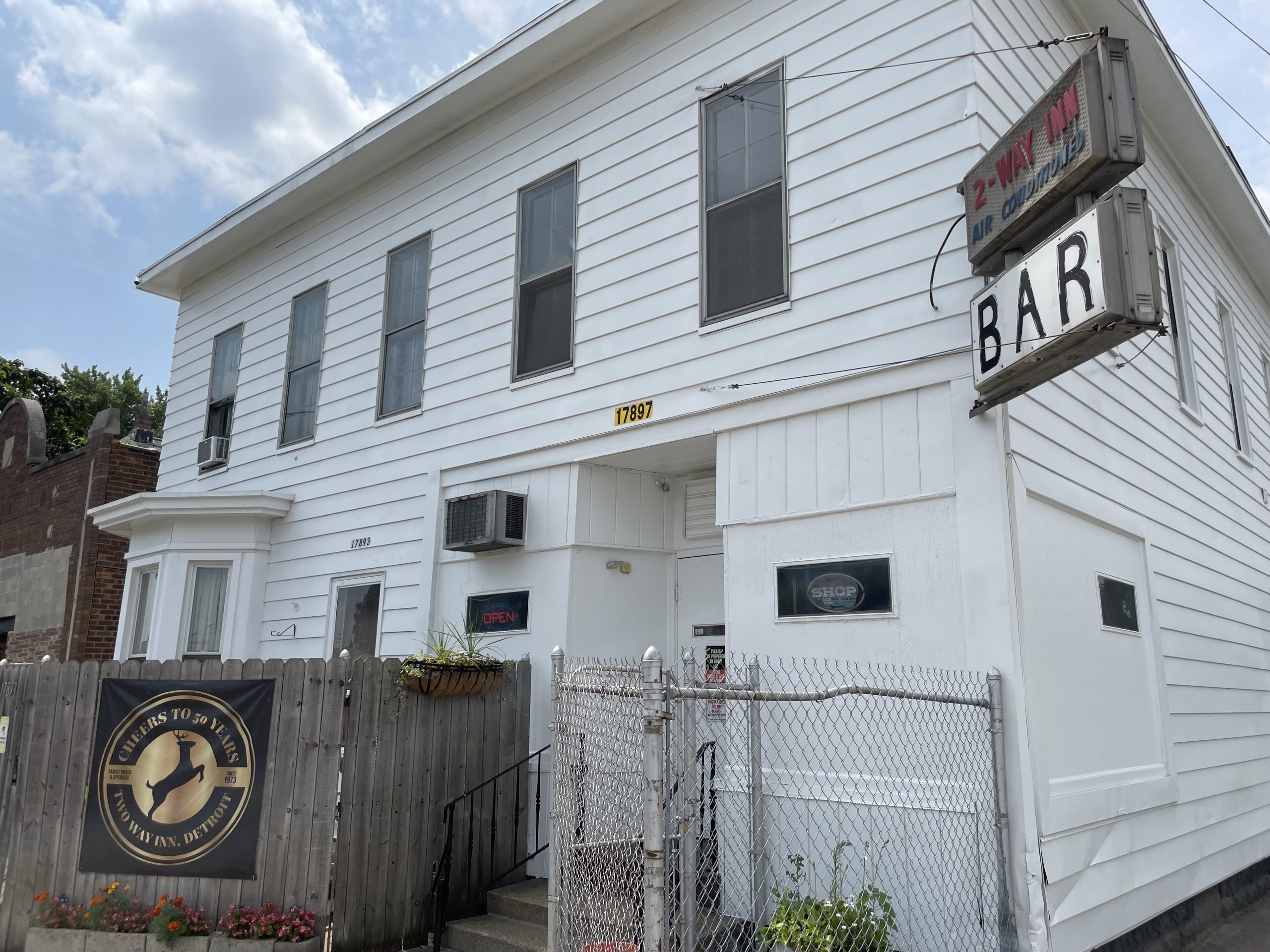
Field Rating
10
out of 10
Haunted, historic and home to Polish beer. Two Way Inn is perfect.
The Basics
17897 Mt Elliott StDetroit, MI 48212
Connect
In Short
Field Note
The renaissance story of Detroit is true as vast chunks of the city are redeveloped and reimagined in beautiful, compelling ways. But old Detroit still exists around the fringes of the city’s rebirth, parts of town as of yet untouched by fresh investment. Two Way Inn, the city’s (disputedly) oldest bar, sits squarely in old-school Detroit and has done exactly that since 1873.
The long history of Two Way Inn includes elements as diverse as the Civil War, Prohibition, dentistry and numerous sightings of spirits roaming the bar. Founded in 1873 by Colonel Philetus Norris, Two Way Inn was converted into a saloon in 1876. Norris is a notable figure in American history as both a Civil War colonel and the second every superintendent of Yellowstone National Park. He founded the city of Norris, Michigan, and used Two Way Inn as a government office and local jail.
The city of Norris has since been absorbed into greater Detroit and after Norris fell ill and died in 1885, his spirit has been spotted numerous times within Two Way Inn, sometimes under the moniker “The Cowboy” thanks to his trademark hat. Over the following decades, Two Way Inn took on roles such as hotel, brothel, general store and stagecoach station. During Prohibition, the space was used as a dentist’s office, presumably but not officially so that the legal loophole of doctors “prescribing” alcohol at that time could be used to the community’s benefit.
Most of the bar’s prominent features still date to that time period, including original wooden floors, stained glass, mirrors, a copper ceiling in the pool room and the back bar.
At one point in the history of bars in America, prominent brewers starting buying up and contracting with bars around the country to exclusively sell their brand of beer. Two Way Inn is one such bar, the first Stroh’s bar in Detroit and one of two still standing alongside fellow epic dive bar Abick’s Bar in the southwest part of the city. Most of the bar’s prominent features still date to that time period, including original wooden floors, stained glass, mirrors, a copper ceiling in the pool room and the back bar itself.
Harry Malak bought Two Way Inn in 1973, ushering in a period of family ownership that persists today. Daughter Mary Aganowski now serves as the Detroit dive bar’s manager & owner, her father’s hunting trophies still visible throughout the space. Over the years, the Malak family and its many generations have traditionally lived above the bar.
With such a long history, a tradition or two are bound to survive and Two Way Inn features a pair of memorable practices. The first, the quarter toss, is unconfirmed as a still-viable tradition, but the original idea was to place a foot on the rail beneath the bar, lean back and flip a quarter behind the back bar. An effective toss would mean the quarter finding the gap between the back bar and the wall, sliding down the wall to make a clinking sound that would signify the granting of a wish made when the quarter was thrown.
A more visible tradition is the bell above the bar with an accompanying sign making clear that if the bell is rung, the ringer owes the full bar a round.
A more visible tradition is the bell above the bar with an accompanying sign making clear that if the bell is rung, the ringer owes the full bar a round. A series of chalkboards attached to the bar’s walls depict the signatures of the generous few who have rung the bell, a perk of the tradition. But beyond the history and tradition of Two Way Inn, it is afterall still a great place to grab a beer. There are no taps here, only bottles and cans including Zywiec, a Polish beer hard to find outside of Detroit without a trip to Poland.
The sign above the front door reads “2 Way Inn” just above “Air Conditioned” and large block letters spelling “BAR” (the bar also features Wi-Fi, for the record). Visitors must be buzzed in, so make sure to ring the bell and wait a bit before grabbing the handle. Inside, a string of well-worn rooms leads to a central area and Two Way Inn’s ancient bar. Be sure to take a glance at really every piece of wood within Two Way Inn as most of it has experienced well over a century of smoke, beer and everything that comes with both.
Vintage cash registers, a velvet painting of John Wayne and old framed photos of the bar as it once was all dot the walls, creating what really feels like an endless visual display that makes use of every bit of Two Way Inn’s historic past. The door in back harkens back to the origin of the bar’s name, sourced from the presence of two ways into the bar and two ways out, a useful trait at a time when escaping from a sticky situation might be a very real requirement of visiting a bar.
There are pinball machines and other distractions here, but more interesting is the old payphone booth, the vintage piano with framed photos on top and every other weathered element that has seen a cigarette burn, a signature or some other badge of honor that comes with persisting for so long in a town as friendly to timeless, historic bars as Detroit.

